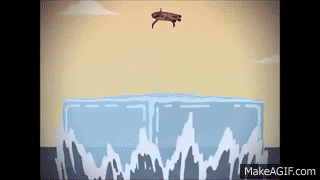No need for. Solar panels and batteries are at an historically low price and will even become more affordable. There’s simply no economical justification for nuclear energy.
You also need to think about the space required for these solar farms. I can tell you that I’ve seen some barby forests and animals living there completely wiped out for building solar farms.
When the intent is making money, there are no clean energies…
No need for. Solar panels and batteries are at an historically low price and will even become more affordable. There’s simply no economical justification for nuclear energy.
How many solar panels and batteries are needed to power every electrical grid on the planet?
Where do we locate all of the panels and batteries?
Where do we get all of the materials for all of the panels and batteries?
What is the total cost to operate and maintain that global power grid?
What is the lifespan of the grid?
What happens to all of the panels and batteries at end of life, and how much does it cost?
Exactly. Solar panels and batteries can theoretically be recycled, but we generally don’t bother today, and there’s a lot more bulk in dealing with old panels and batteries than spent nuclear fuel rods.
So dealing with the waste of nuclear is a more constant thing, but also much lower volume than something like solar panels or batteries.
I think we need both, but ideally we use something other than batteries for base load supply, and only use it to store excess peak generation (or ideally, use something other than batteries for short-term storage, like hydrogen or hydro pumps).
Secondly, having baseload vastly reduces the amount of batteries needed, and overall is helpful, and nuclear is one of the best baseloads there is.
By any logic we should work on fusion research because it’s the actual solution, but the enemy isn’t nuclear or renewables, it’s fossil fuels, they must be killed as brutally as possible, not just for their ecological impact, but also for their political impact, which may be the most toxic of all.
Imagine the politics of this country if Texas wasn’t “Saudi Oil Money” rich and didn’t try to screw over our politics on a constant basis. They’re the reason we don’t have nuclear already, they’d much rather keep everyone on the dinosaur habit than let us move forward an inch.
Sure, and the next several thousands generations will also have a lot of fun with the waste we produced for just 2-3 generations.
We can reprocess, it’s just cheaper to jam in it a hole and solve the problem once and for all:
No, there’s no method that eliminates all of the nuclear waste. I know that this myth is very much liked in the nuclear community.
Great, is there a method that eliminates all byproducts of fossil fuels?
It reduces them dramatically, to something we can easily deal with, that’s huge.
No need for. Solar panels and batteries are at an historically low price and will even become more affordable. There’s simply no economical justification for nuclear energy.
https://news.harvard.edu/gazette/story/2023/10/clearing-forests-to-erect-solar-panels-may-not-be-clean-energy-solution/
You also need to think about the space required for these solar farms. I can tell you that I’ve seen some barby forests and animals living there completely wiped out for building solar farms.
When the intent is making money, there are no clean energies…
How many solar panels and batteries are needed to power every electrical grid on the planet?
Where do we locate all of the panels and batteries?
Where do we get all of the materials for all of the panels and batteries?
What is the total cost to operate and maintain that global power grid?
What is the lifespan of the grid?
What happens to all of the panels and batteries at end of life, and how much does it cost?
Exactly. Solar panels and batteries can theoretically be recycled, but we generally don’t bother today, and there’s a lot more bulk in dealing with old panels and batteries than spent nuclear fuel rods.
So dealing with the waste of nuclear is a more constant thing, but also much lower volume than something like solar panels or batteries.
I think we need both, but ideally we use something other than batteries for base load supply, and only use it to store excess peak generation (or ideally, use something other than batteries for short-term storage, like hydrogen or hydro pumps).
Firstly, we’ll get there in time.
Secondly, having baseload vastly reduces the amount of batteries needed, and overall is helpful, and nuclear is one of the best baseloads there is.
By any logic we should work on fusion research because it’s the actual solution, but the enemy isn’t nuclear or renewables, it’s fossil fuels, they must be killed as brutally as possible, not just for their ecological impact, but also for their political impact, which may be the most toxic of all.
Imagine the politics of this country if Texas wasn’t “Saudi Oil Money” rich and didn’t try to screw over our politics on a constant basis. They’re the reason we don’t have nuclear already, they’d much rather keep everyone on the dinosaur habit than let us move forward an inch.
deleted by creator